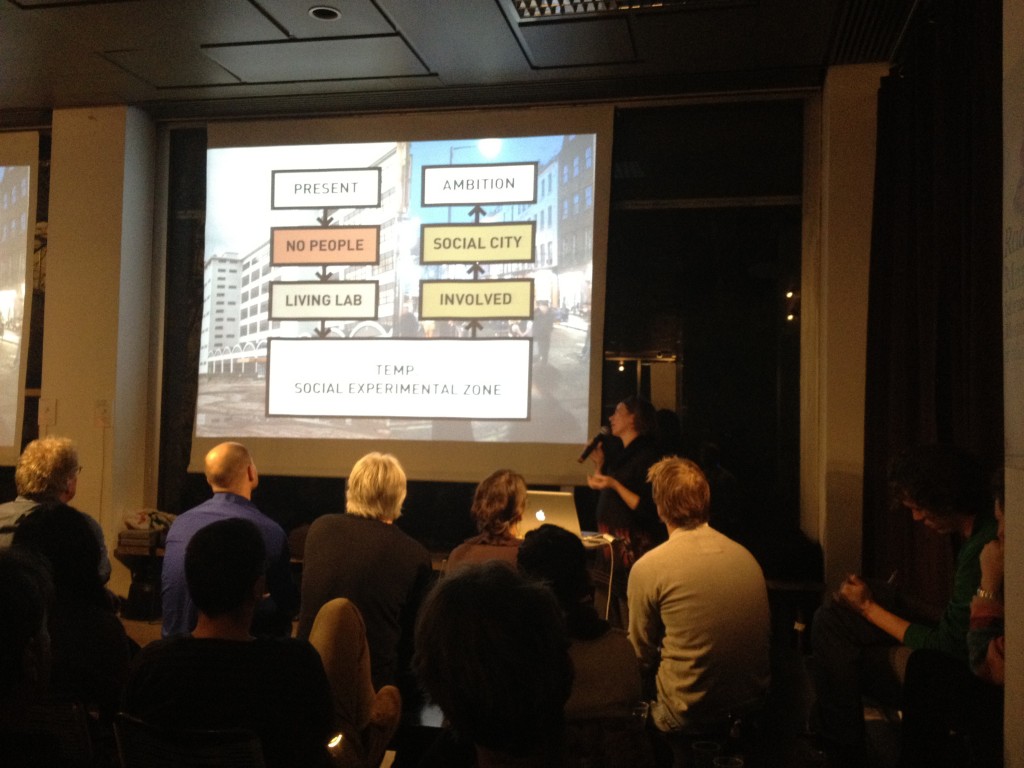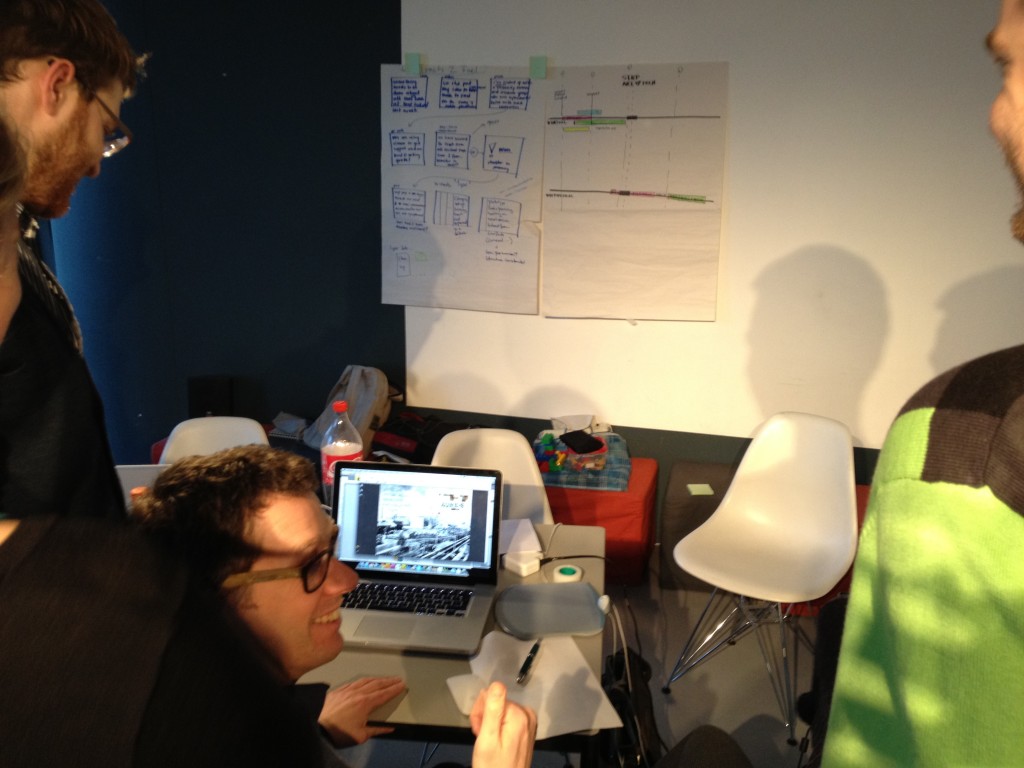|
|
Social Cities of Tomorrow
- Written by Nicole Martin
- Monday, 27 February , 2012
I have just returned from the Social Cities of Tomorrow 3-day workshop and 1-day conference in Amsterdam. The catch cry for the week was “how can we make cities more social, not only more technical?”. Although some of the people I spoke to criticise the conference for veering off topic, for me an expansion of the core thematic into topics like, designing for stakeholders and designing trust, highlighted just how far the discourse of new media is penetrating into various disciplines and worlds of disciplinarians. So in appreciation of those willing to expand topics I will outline some of my personal thematic highlights.
Architects, raise your hands!
In 2008 the co-founders of the Mobile City platform asked the crowd at their first conference to raise their hands according to which profession they identified themselves with. At this time only 3 out of the 100 person crowd answered to the title of architect. Fast-forward 4 years, and over half of the same sized event was architecture professionals. This is mission accomplished for the Mobile City team who four years ago set out to highlight the need for architects to get more involved with the new media around them.
Between the virtual and the physical
Following on from this, probably because the conference was occupied by ‘spatial professionals’ more than ever before; a recurring theme of both the workshop and the conference was discussing the relationship between the virtual and the physical. Here we see a shift from the past physical/virtual discussion from an individualists notion, is the individual more present in virtual or physical space, to a collective agenda; how is the virtual world transforming how we create the physical world.
Agency in data participation
Usman Haque, the founder of Pachube.com used his keynote hour to highlight that the real agency in his data collection site is not the data itself, but rather the participatory act of data collection. For it is this act of collecting data that generates a sort of knowledge through doing, a knowledge and subsequent agency that cannot be matched. This is particularly strong in environmental data. See some numbers on air pollution, so what. Actually going out there measuring the air born particles with your finger tips and realising how much air born muck lands all around us everyday. That is agency to do something about it.
Systemic design
A reoccurring thematic to the workshop was a reaction to the financial crisis, how development in Amsterdam is at a standstill, and those alternative methods to development must be found in order to keep the city moving. Obviously here the conversation naturally turns to the notion of bottom up development, but Dan Hill used his keynote to promote alternatively systemic design as a deliberate, stakeholder-inclusive, alternative process that aims to change policy through design.
Stakeholders and workshops
The workshop was a highlight. It aimed to bring heterogeneous groups of professionals together to design ideas for large stakeholder organisations. I joined in Team three, as the stakeholder Trudo is a large housing developer. In Oslo right now it is these types of organisations that are rendering the most critique for not ensuring new design ideas and involving publics, so I was curious to see how this would pan out in another context. A summary of our work can be seen here. But in short, the client was impressed and we may be returning to Amsterdam for a follow-up workshop in April.



